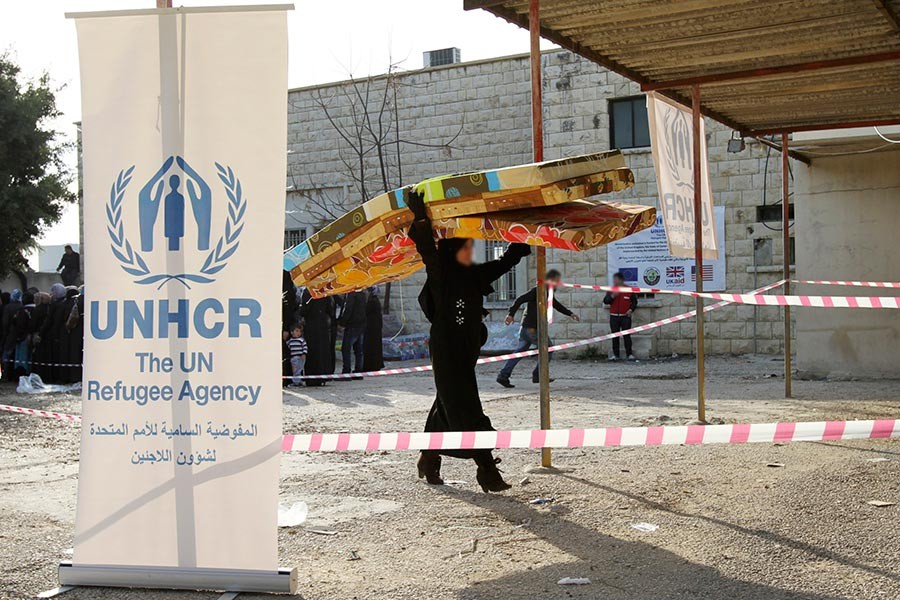Syria conflict: Women 'sexually exploited in return for aid'

Published :
Updated :

Women in Syria have been sexually exploited by men delivering aid on behalf of the UN and international charities, according to a BBC report Tuesday.
Aid workers said the men would trade food and lifts for sexual favours.
Despite warnings about the abuse three years ago, a new report shows it is continuing in the south of the country.
However, UN agencies and charities said they had zero tolerance of exploitation and were not aware of any cases of abuse by partner organisations in the region.
Aid workers told the BBC that the exploitation is so widespread that some Syrian women are refusing to go to distribution centres because people would assume they had offered their bodies for the aid they brought home.
One worker claimed that some humanitarian agencies were turning a blind eye to the exploitation because using third parties and local officials was the only way of getting aid into dangerous parts of Syria that international staff could not access.
The United Nations Population Fund (UNFPA) conducted an assessment of gender based violence in the region last year and concluded that humanitarian assistance was being exchanged for sex in various governorates in Syria.
The report, entitled "Voices from Syria 2018", said: "Examples were given of women or girls marrying officials for a short period of time for 'sexual services' in order to receive meals; distributors asking for telephone numbers of women and girls; giving them lifts to their houses 'to take something in return' or obtaining distributions 'in exchange for a visit to her home' or 'in exchange for services, such as spending a night with them'."
It added: "Women and girls 'without male protectors', such as widows and divorcees as well as female IDPs (Internally Displaced Persons), were regarded as particularly vulnerable to sexual exploitation."
Yet this exploitation was first reported three years ago. Danielle Spencer, a humanitarian adviser working for a charity, heard about the allegations from a group of Syrian women in a refugee camp in Jordan in March 2015.
She conducted a focus group with some of these women who told her how men from local councils in areas such as Dara'a and Quneitra had offered them aid for sex.
"They were withholding aid that had been delivered and then using these women for sex," Ms Spencer said.


 For all latest news, follow The Financial Express Google News channel.
For all latest news, follow The Financial Express Google News channel.